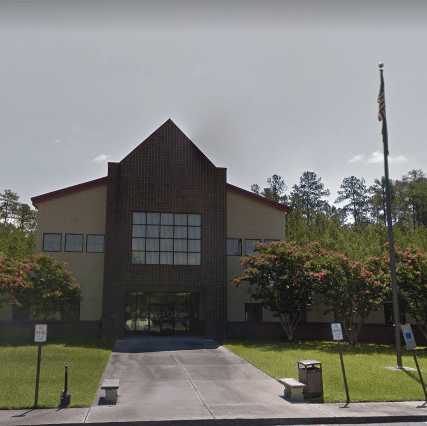1105 Gregg Highway
Aiken, SC - 29801
Phone (803) 649-1900
This is a sliding scale approved program
Services/Programs:
The following programs, managed and operated by the Aiken Center, provide substance abuse and employee assistance services to the community and individual clients:
A. Community Based Outpatient Counseling and Treatment (CBT)
GroupB.
C. Alcohol/Drug Safety Action Program (ADSAP)
Services include:
D. Adolescent Therapy Group
E. Alcohol Education Program (AEP)
F. Alcohol Intervention Program (AIP)
G. Youth Services Program
Most client-paid fees are assessed using a "sliding-fee" scale.
This scale is based upon family size and income, using the latest USDHHS poverty guidelines as a basis for calculating the percentage of the full-fee that must be paid.
The resulting percentage of discount (if any) is applied to the Aiken Center fee for the service provided to determine the actual amount of charges.
The costs of some programs are assessed as full-payment (non-discounted) or flat-rate, "program" fees.
The portion of fees to be paid by third parties, as well as prescribed client co-payments, are to be assessed in accordance with contractual agreements with those parties.
Third parties, including Medicaid and private insurance carriers, are billed for services provided to children and adolescents as well as their families.
However, children and adolescents are not billed on a self-pay basis for any services, even if they lack a third-party payer.
However, this policy applies to family services only when the child or adolescent is the primary client.
Each client must be informed of the fee being assessed, prior to the delivery of the service.
A schedule of fees will be given to each client at intake and posted in public areas in Aiken Center facilities.
The intent is that the client be aware of the financial obligations being assumed at all times.
Fee CollectionFees are due and payable at the time services are rendered, unless other payment arrangements are made.
The Aiken Center shall provide clients with statements, on a monthly basis, that reflect charges, payments as well as beginning and ending balances.
Indebtedness for clients who have demonstrated an unwillingness to pay their fees shall be forwarded to the South Carolina Department of Revenue "Gear Program" for collection.
Clients who are "unwilling" to pay their fees shall be interviewed by Agency personnel for the purpose of negotiating a new, mutually-agreeable Fee Agreement prior to submitting their account to the Gear Program.
In addition, unpaid debt for clients who are unwilling to pay may also be submitted to the South Carolina Department of Revenue under the terms of the Set-Off Debt Collection Act of 1988 (Section 12-56-62), as amended, by which all or part of their South Carolina State Tax Refund may be applied to their outstanding debt at the Aiken Center.
A fee payment agreement, governing the method of assessing charges and the manner of repayment of resulting debt, that is mutually acceptable to both the client and the Aiken Center, is deemed to be satisfactory evidence that the client is capable and willing to pay for the services being received.
If a mutually acceptable fee agreement cannot be negotiated, the Aiken Center shall conduct a complete financial assessment of the clients circumstances to determine the clients indigence, i.e., the "inability" to pay fees.
The results of this assessment process are to be used to determine if fees are to be charged.
Fees cannot be charged if the client is determined to be indigent.
Many clients are mandated to receive services from the Aiken Center as a result of their interaction with criminal justice or law enforcement agencies, such as the South Carolina Probation, Parole and Pardon Services (SCDPPPS) or the Second Judicial Circuit Solicitors Office.
It is the policy of the Aiken Center to consider such clients indigent and waive their treatment/service charges only if these referring entities also declare them indigent and waive their fees and other financial assessments.
No client may be refused services due to an "inability" to pay for services.
However, a client may be refused treatment or intervention services, not deemed medically necessary, because of an "unwillingness" to pay fees for the services received.
"Unwillingness" is defined as:
A client may not be refused screening or information and referral services, as well as those services deemed medically necessary to safeguard the health and well being of the client because of a failure to pay either current or historical charges.
Both conditions assume that the financial assessment process has been employed for clients who claim to be indigent and that the assessment indicates that the client has the "ability" to pay fees.

| Persons In Family Household | Poverty Guideline salary per year |
| 1 | $14,580 |
| 2 | $19,720 |
| 3 | $24,860 |
| 4 | $30,000 |
| 5 | $35,140 |
| 6 | $40,280 |
| 7 | $45,420 |
| 8 | $50,560 |
Question
Answer this question...
Question
Answer this question...